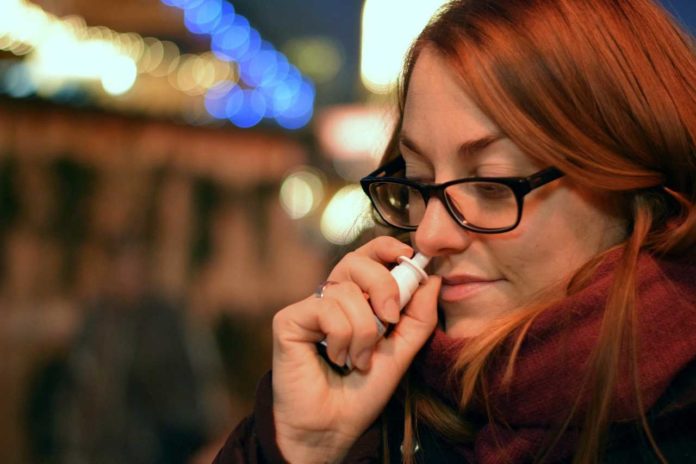Like humans, ferrets are also susceptible to COVID-19. They have a very similar effect on them as humans, causing difficulties in breathing that tend to be worse for older individuals.
To block the spread of COVID-19 among ferrets, scientists at Cornell, Columbia University Irving Medical Center, and Erasmus Medical Center in the Netherlands have developed a nasal spray with in vitro and ex vivo efficacy. The nasal spray is expected to generate treatments.
Chris Alabi, associate professor of chemical and biomolecular engineering, said, “This is a simple nasal formulation that we think can prevent the transmission of SARS-CoV-2 in humans. The beauty of the research is its simplicity. The ultimate goal is to create a nasal spray drug product that can be made widely available, kept ready in a purse or pocket. A key feature of this research is that it’s a plug-and-play platform technology that can be adapted and applied to other viruses or mutations.”
Daily intranasal administration to ferrets completely prevented SARS-CoV-2 direct-contact transmission during 24-hour co-housing with infected animals, under stringent conditions that resulted in infection of 100% of untreated animals.
When COVID-19 emerged, scientists identified the sequence of the viral proteins. Viruses such as measles, Ebola, and COVID-19 share a similar fusion mechanism. They swapped out the measles or the Ebola peptide for the HRC peptide in SARS-CoV-2 and tagged it with a cholesterol lipid.
Alabi said, “The Porotto and Moscona labs at Columbia identified the crucial peptide sequence, and then they worked with us to create the peptide cholesterol conjugate. Given our previous work, we were able to make the monomer and dimer conjugates along with various other macromolecular combinations, purify them, assess their solubility, and then send them out to our collaborators at Columbia for antiviral testing. The lead candidate was then sent to the Netherlands for ferret studies.”
When scientists tested the formulation on ferrets, it turned out that the lipopeptide fusion inhibitors successfully prevented transmission of the SARS-CoV-2 virus.
The scientists envision their formulation as a prophylactic agent that people would apply to their nasal passages – where COVID-19 most readily enters the body – two to six hours or more before potential exposure. The lipopeptide is robust and stable at room temperature, eliminating the need for refrigeration or cold-chain storage.
Alabi said, “So, for example, if you want to go to a gathering, say a basketball game or somewhere where you’re nervous that you might be exposed to the virus, this product is something that you would spray in your nose at the beginning of the day, and should enable a 24-hour or more protection from the virus.”
Co-authors include Cornell postdoctoral researcher Sudipta Biswas and critical researchers from Columbia University Irving Medical Center, Erasmus Medical Center, the University of Campania in Italy, and the University of Wisconsin, Madison.
The research was supported by the National Institutes of Health, the Sharon Golub Fund at Columbia University Irving Medical Center, the Children’s Health Innovation Nucleation Fund of the Pediatrics Department at CUIMC a Harrington Discovery Institute COVID-19 Award.
Journal Reference:
- Rory D. de Vries et al. Intranasal fusion inhibitory lipopeptide prevents direct-contact SARS-CoV-2 transmission in ferrets. DOI: 10.1126/science.abf4896
